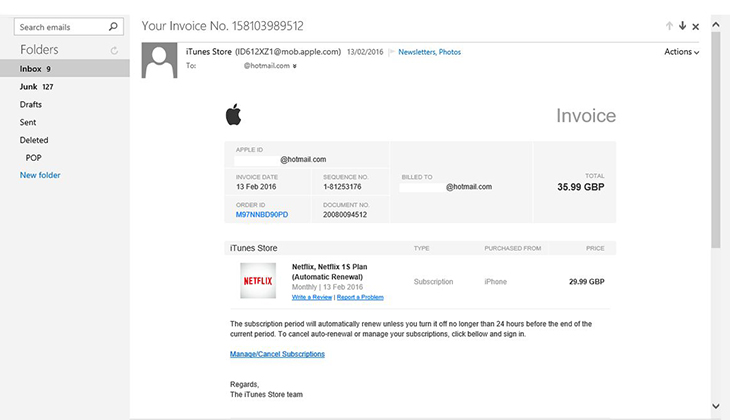ALERT: Fraudster attack
Amy Power, 7th November 2016, Household
As digital technology advances, so does the techniques of scammers. Forging text messages, emails, letters, phone calls you name it they're trying it! Take a look at some of the scams that took place in 2016, so you don't fall victim.

The text message scam
This year we saw fraudsters hit a real low. Targeting parents by making them believe that their child had been hurt in a car accident, and asking them to send over phone credit so they could call them.
The text messages said:
"Mum i did try and phone from some else phone signal is really bad, there has been a terrible car accident. I'm in the ICU ward in hospital my phone ain't switching on and needs charging. I'm on this mobile number please make sure you reply to this number, my friend didn't make it he died before we got to hospital and his sister's fighting for her life. Mum i had my seatbelt on, i've got a head injury but i'm ok. Going into Xray to be seen, please make sure you message me back and don't phone cause mobile phones aren't allowed here so please text in case I'm in there. I will go outside and phone you mum its really bad i need you to do me favour before it's too late, as soon as you get my text please reply by text i need you to do me a favour mum, time is running out and i need you to do something mum." - Information taken from Action Fraud's blog post.
Any parents heart would drop reading this text message. You can only imagine the number of parents who sent over the phone top up, and began searching local hospitals for their injured child once they stopped receiving contact from the mystery number.
If you receive a message of this nature please phone your child on their direct number before you do anything.
The iTunes/Netflix Scam

Scammers have stepped up their reproduction techniques, and fake emails are becoming increasingly difficult to spot. This Summer highlighted the problem, when scammers used Netflix as a disguise to obtain passwords for iTunes accounts.
Many iTunes accounts have a debit card linked to them, so that the account holder can make speedy purchases. The hackers utilised this knowledge and would gain access to a victims iTunes, obtain their card details and then drain the bank account.
Above you can see an example of this fake email that was circulated. If you want to check whether an iTunes email is legitimate follow these checks provided by Apple from their support site.
HMRC fake phone calls

In June of 2016 the fraudsters devised a new scam. They began leaving voicemails pretending to be from Her Majesty's Revenue and Customs, convincing the victim that they owed money.
The message would inform the listener that HMRC is filling a law suit against them, and that they had been trying to get in contact to discuss this.
There have been many variations of this scam including:
- Fake calls: where you speak to someone who convinces you that you owe HMRC money.
- Text Messages: Asking victims to urgently call them because they need to pay their outstanding debt immediately.
- Gift cards: Scammers have also convinced people to pay off their debt by purchasing gift cards, such as iTunes vouchers, and then giving them the code. The fraudster will then sell on this code for a profit, or simply redeem it themselves.
If you receive a suspicious call from HMRC asking you to provide your bank details or that you owe them money which you must pay immediately, hang up. Call the HMRC back directly, and verify whether or not the call was from them.
If it was a fake call, notify Action Fraud so they can report it.
Hopefully this article will make you a little more wary, and you'll keep your eyes peeled for anything that seems suspicious.
Related articles
Monthly Newsletter
Not signed up to our monthly newsletters and would like to keep up to date with a variety of products? Select from below which products you would like to receive.
No Product! Please select a product